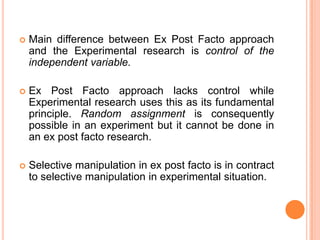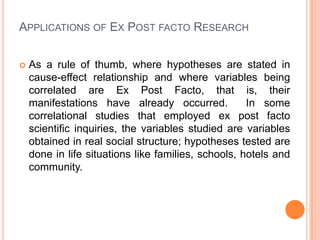The document discusses ex post facto research and participatory research methods. Ex post facto research investigates problems by studying variables that have already occurred, without direct manipulation by the researcher. It differs from experimental research where the researcher deliberately manipulates variables. Participatory research aims to directly benefit the community by involving all participants in defining problems and solutions. The research team includes both researchers and community representatives.











